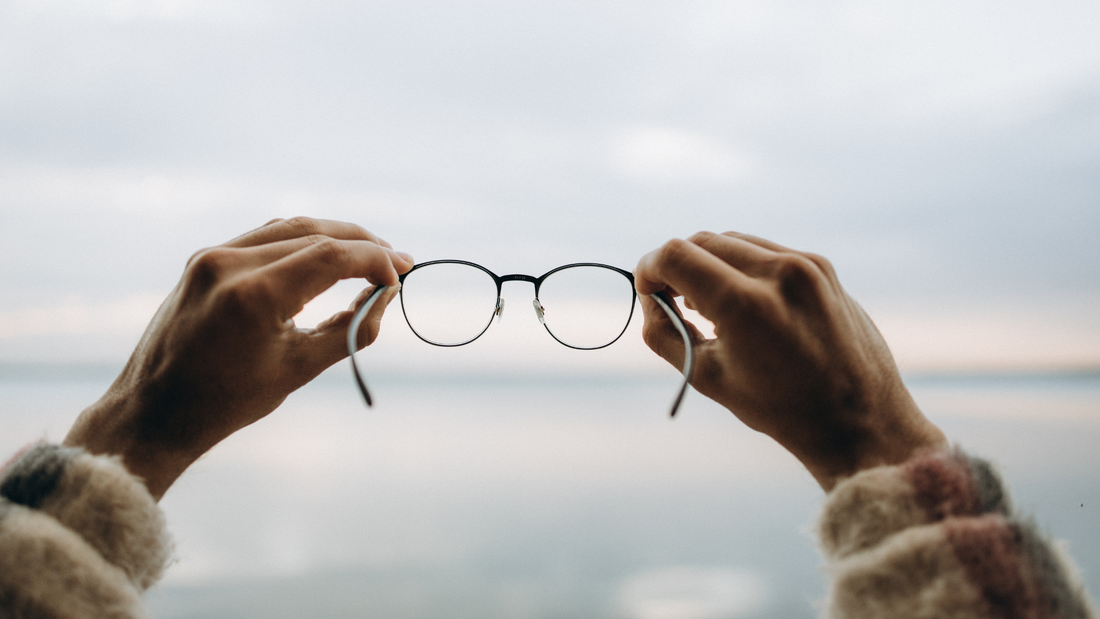
How to Protect Your Eyes from Environmental Hazards: Dust, Pollution, and More
Share
Your eyes are one of the most sensitive and vital organs. Yet, they are often exposed to environmental hazards like dust, pollution, and other irritants. These elements can lead to various eye conditions, ranging from mild discomfort to severe damage. In this article, we’ll explore how you can protect your eyes from these environmental threats and maintain optimal eye health.
Understanding Environmental Hazards to Your Eyes
Dust and Debris
Dust and debris are common environmental hazards that can irritate the eyes. Whether working in a dusty environment or simply spending time outdoors on a windy day, these particles can quickly enter your eyes, causing redness, itching, and discomfort. Over time, repeated exposure to dust can lead to more severe conditions like conjunctivitis or corneal abrasions.
Air Pollution
Air pollution, especially in urban areas, significantly threatens eye health. Pollutants such as smoke, smog, and chemical vapors can irritate the eyes, leading to symptoms like burning, tearing, and a gritty feeling. Extended exposure to air pollution has been linked to serious eye conditions, including dry eye syndrome and cataracts.
Pollen and Allergens
Seasonal allergens like pollen can also be a significant irritant to the eyes. Allergic reactions can lead to itchy, watery eyes and if not managed properly, lead to more severe allergic conjunctivitis. Pollen exposure can be a recurring issue for those with sensitivities, making it essential to take preventive measures.
Effective Ways to Protect Your Eyes
- Wear Protective Eyewear
One of the easiest and most effective ways to safeguard your eyes from environmental hazards is by wearing protective eyewear. Sunglasses with UV protection can shield your eyes from harmful ultraviolet rays and block dust, debris, and pollen. Safety goggles are a must for those working in hazardous environments to prevent injury from flying particles.
- Maintain Eye Hygiene
Keeping your eyes clean is crucial in protecting them from environmental hazards. Wash your hands regularly to avoid transferring dust, allergens, or pollutants to your eyes. If you use contact lenses, make sure they are clean and replace them according to the recommended schedule. Consider using lubricating eye drops to moisten your eyes and flush out irritants.
- Limit Exposure to Polluted Environments
Whenever possible, limit your time in polluted environments. Stay indoors during peak pollution hours, and avoid areas with heavy traffic or industrial activities. If you must be outside, consider wearing a hat or using an umbrella to reduce direct exposure to environmental pollutants.
- Stay Hydrated
Keeping your body well-hydrated is essential for maintaining eye moisture. Drinking plenty of water helps your eyes produce tears, which are necessary for flushing out dust and other irritants. Hydration also helps prevent dry eyes, a common problem exacerbated by exposure to environmental hazards.
- Use Air Purifiers Indoors
Using air purifiers in your home or office can significantly reduce the presence of dust, pollen, and other airborne particles. This can make your indoor environment safer for your eyes, especially if you spend a significant amount of time indoors. Regularly cleaning and maintaining your air filters can further ensure that the air quality remains high.
When to See an Eye Doctor
If you experience persistent discomfort or symptoms like redness, swelling, or vision changes, it’s essential to consult an eye doctor. Early intervention can prevent minor irritations from developing into more serious eye conditions.
Conclusion
Protecting your eyes from environmental hazards is essential for maintaining long-term eye health. Preventive measures like wearing protective eyewear, maintaining eye hygiene, and by limiting exposure to pollutants, you can significantly decrease the risk of eye irritation and damage. Remember, your eyes are irreplaceable, so taking the time to care for them is always worthwhile.
Daniel Walters Eyewear
Address: 19301 Ventura Blvd, Suite 203, Tarzana, CA 91356, United States of America
Phone: +1(855) 326-4359
Email: info@danielwalters.com
Your eyewear journey starts here! Begin your adventure at www.danielwalters.com
